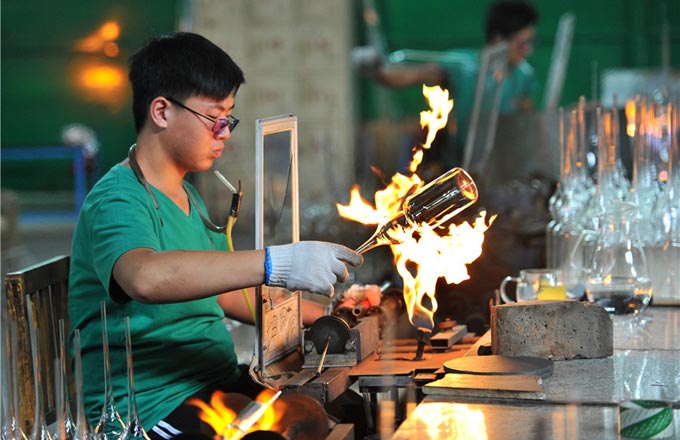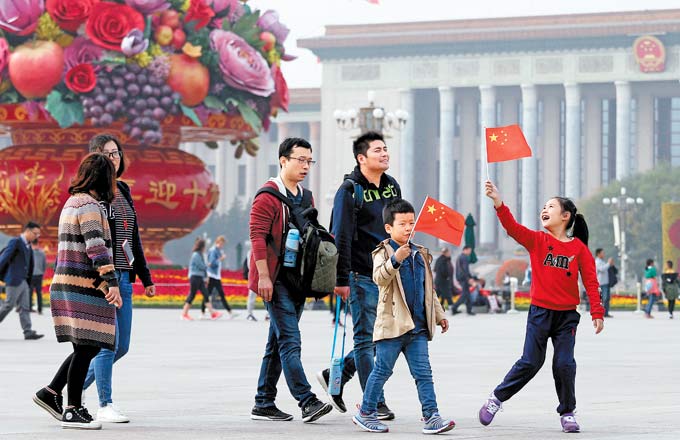App keeps basketball venue hopping
The sharing business is so common in Shanghai that soon you may not be able to get into a basketball court in Shanghai if you forget your phone.
Two outdoor basketball courts in the city's downtown Jing'an district have adopted a sharing business model to ensure booking efficiency and better management. Through an app, any player can enter the court by scanning the QR code at the entrance. Payment will be automatically deducted when the code is scanned upon leaving. The sharing format also allows interested players to check the courts' availability beforehand.
The courts are the first public sports venues in Jing'an to have adopted the sharing model.
"We'll expand the sharing model to the rest of our 21 public venues if it works well with these two basketball courts," said Zhang Qi, an official of the Jing'an sports bureau, which is responsible for the management of the district's public sports venues.
According to Zhang, compared with traditional management that requires at least a janitor to monitor a venue, the charge-per-visit format saves labor and simplifies the payment process.
"It also helps keep people who might not be interested in playing basketball from entering the court," Zhang added.
More than 1,000 people have entered the two basketball courts using the app since its introduction in July, according to Jiuhui Sports, the company that provides administrative and tech support for the sports venues.
It has proved popular among regular players.
"Most of the outdoor basketball courts are full of people during peak hours, but since scanning the QR code is the only way to get into the courts now, there are not as many people as before," said Fan Di, who lives in Jing'an and is a regular basketball player.
According to Fan, the courts used to attract not only players but also onlookers. The latter not only occupy much of the courts' space but also pose a threat to the player's belongings, Fan said.
Even though there is no administrative staff inside the court, monitors have been set up to supervise the courts and staff members are available to deal with emergencies or accidents, according to Zhang.
If the feedback is positive, the concept will be expanded to other sports courts in Jing'an, and hopefully extended it to the rest of the city, Zhang said.
According to the Shanghai Sports Bureau, by the end of 2016 the city had 446 public sports courts. Jiuhui Sports said its goal is to cover over 300 courts and serve more sports lovers, eastday.com reported.




















